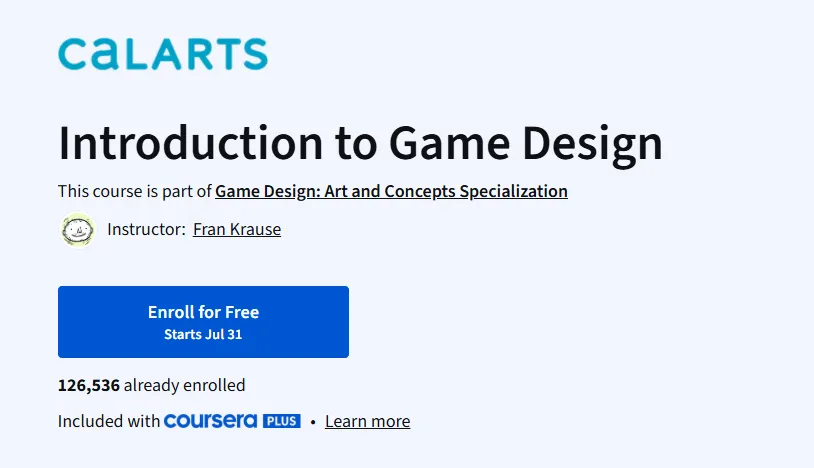What will you learn in Introduction to Game Design Course
Understand the foundational principles of game design and gameplay mechanics.
Explore core concepts like game systems, rules, playtesting, and player experience.
Learn how to design compelling games using both digital and non-digital formats.
Analyze game genres, goals, interactivity, and balancing techniques.
Build a playable paper prototype through hands-on exercises.
Program Overview
Module 1: Defining Games
⏳ 1 week
Topics: What is a game, key elements, types of games
Hands-on: Analyze and compare different games using basic frameworks
Module 2: The Elements of Game Design
⏳ 1 week
Topics: Mechanics, dynamics, aesthetics, goals, and rules
Hands-on: Design game mechanics using pen-and-paper exercises
Module 3: Game Systems and Complexity
⏳ 1 week
Topics: Systems thinking, emergent gameplay, balancing complexity
Hands-on: Create a simple rule-based system to simulate gameplay
Module 4: Prototyping and Playtesting
⏳ 1 week
Topics: Rapid iteration, feedback loops, player behavior
Hands-on: Build and test a paper prototype, collect feedback
Module 5: Designing for Experience
⏳ 1 week
Topics: Emotional engagement, storytelling, immersion
Hands-on: Revise your prototype with emotional or narrative goals in mind
Get certificate
Job Outlook
Strong demand in game development, interactive media, and user experience design.
Prepares learners for roles in indie game creation, board game design, and creative direction.
Skills transferable to edtech, simulation design, and gamification industries.
Entry-level foundation for aspiring game designers, writers, or product designers
Specification: Introduction to Game Design
|
FAQs
- No coding or design experience required.
- Focuses on fundamental game design principles and mechanics.
- Suitable for aspiring game designers, writers, and creative professionals.
- Hands-on exercises with paper-based prototypes.
- Emphasizes creativity, iteration, and prototyping skills.
- Build and test paper prototypes through guided exercises.
- Explore game mechanics, dynamics, and aesthetics.
- Learn rapid iteration and feedback integration.
- Analyze player experience and game balance.
- Prepares learners to create engaging gameplay experiences.
- Focuses on narrative and storytelling in game design.
- Teaches how to design for player emotions and immersion.
- Integrates gameplay with narrative goals.
- Explains how player choices affect experience.
- Helps learners design meaningful, interactive experiences.
- Prepares for roles in indie game creation, board games, and interactive design.
- Skills transferable to edtech, simulation, and UX design.
- Entry-level foundation for aspiring game designers or creative directors.
- Strengthens portfolio with hands-on prototype projects.
- Certificate of completion validates foundational game design skills.
- 5 modules covering games, mechanics, systems, prototyping, and experience design.
- Each module: ~1 week at a moderate pace.
- Self-paced with lifetime access.
- Certificate awarded upon completion.
- Total duration: ~5 weeks.





